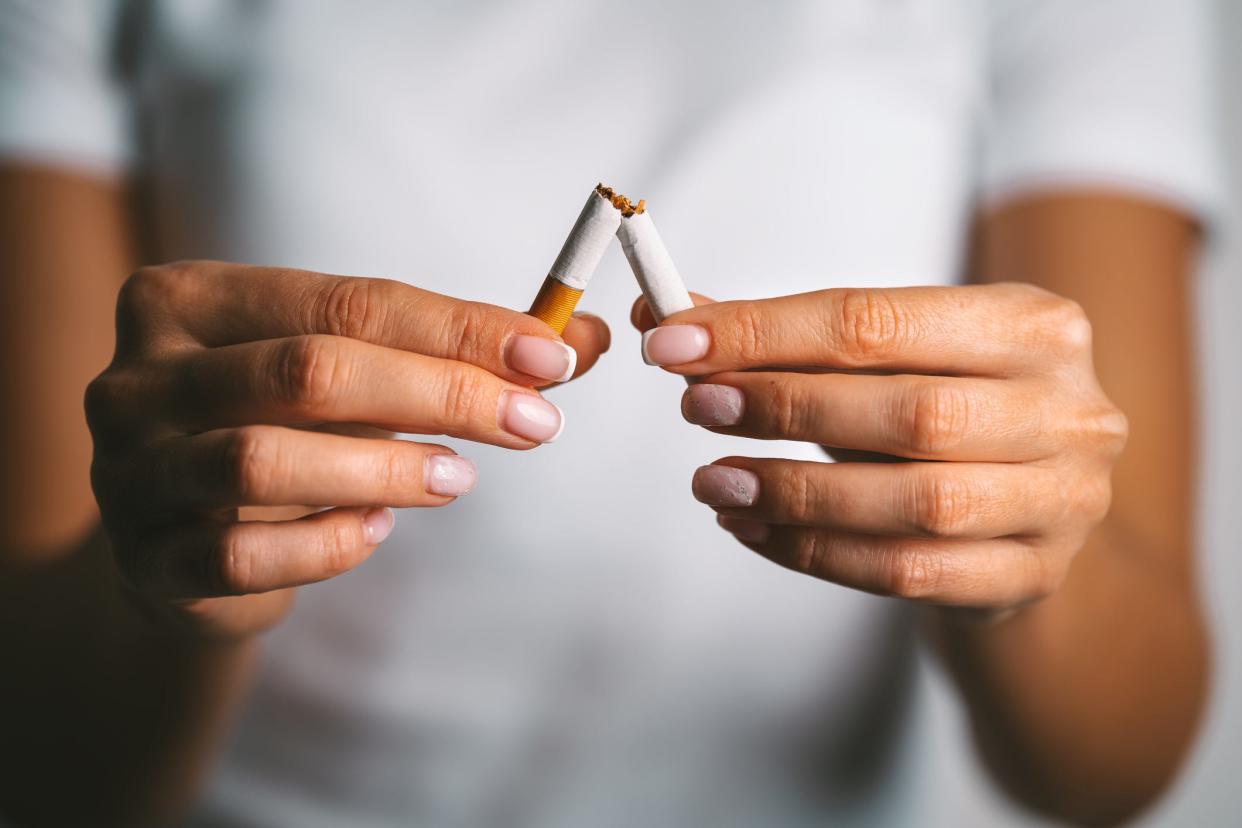Dr. Mitra: There are many ways to reduce cancer risk, but you have to actually do them

Stop cancer!
Take charge by making lifestyle changes such as eating a healthy diet and getting routine cancer screening tests.
Smoking can not only cause cancer of the lungs but also cancers of the mouth and throat, esophagus, larynx, bladder, stomach, liver, cervix, colorectal, pancreas and kidney.
Being around second-hand smoke also can increase your risk of lung cancer.
Besides smoking, chewing tobacco has been linked to oropharyngeal cancer as well as pancreatic cancer.
Dr. Mitra's previous columns:
Get your shot: Cervical cancer is one of most preventable cancers, but you must get vaccinated
Good tips: Ways to help you keep your waist slimmer, mind sharper during the holidays
Be aware: November is American Diabetes Month. Here's a breakdown and what you should know
Deciding to quit smoking is a crucial step to help prevent such cancers.
Discuss with your doctor ways to stop smoking, which may include medications or other ways of quitting, such as hypnotherapy.
Eating a balanced and healthy diet might reduce the risk of cancer.
Consuming plenty of fruits and vegetables and other plant-based diets, including but not limited to whole grains and beans, reduces your risk of colon cancer and a more aggressive form of pancreatic cancer.
Avoid the consumption of refined sugars, saturated fat and red meat.
Drink alcohol only in moderation as alcohol increases the risk of various types of cancer, such as cancer of the breast, throat (pharynx and larynx), mouth, esophagus, colon and liver.
A Mediterranean diet that includes primarily plant-based foods, whole grains, legumes, extra-virgin olive oil and mixed nuts might reduce the risk of breast cancer.
Being at a healthy target weight might lower the risk of breast, colon and possibly reproductive cancers.
Regular aerobic exercise will help you keep your weight under control.
Avoid unwanted radiation exposure.
Avoid medical imaging studies only when indicated.
You are protected from ultraviolet radiation from the sun to prevent skin cancers. Try your best to stay in the shade when outdoors and wear sunglasses and a broad-brimmed hat if possible. Use a broad-spectrum sunscreen and wear bright or dark-colored clothing.
Get enough vitamin D for at least 800 to 1,000 IU a day to help reduce the risk of colon, prostate and other malignancies.
Avoid infections like hepatitis viruses, HIV and the human papillomavirus (HPV) that cause cancer. Many are transmitted sexually or through contaminated needles.
Talk to your doctor about vaccinating against certain viral infections to help protect against cancer.
Hepatitis B can increase the risk of cancer of the liver.
HPV, a sexually transmitted virus, is most often associated with head and neck cancer, cervical cancer and many other genital cancers.
HIV has a higher risk of cancer of the lung, liver and anus.
Safe sex practices and avoiding injecting drugs with shared needles can prevent diseases like HIV, as well as hepatitis B and hepatitis C.
Your doctor can order screening tests to help detect malignancies in their earliest stages.
Perform regular self-exams and schedule routine annual wellness examinations with your doctor.
Screening tests for cancers — such as cancer of the skin, colon, prostate, cervix and breast — can raise the chances of finding cancer early.
Get screened.
Ask your primary care physician about the best cancer screening schedule for you.
Dr. Sue Mitra is a Primary Care Physician and Board Certified in Internal Medicine. She has been practicing in Brevard County since 2002. Dr. Mitra is accepting new patients and can be reached at 321-622-6222. You can visit her website at www.suemitra.com to learn more about her practice and call her office to schedule an appointment.
This article originally appeared on Florida Today: Don't want cancer? Follow these steps to reduce your risk of getting it
